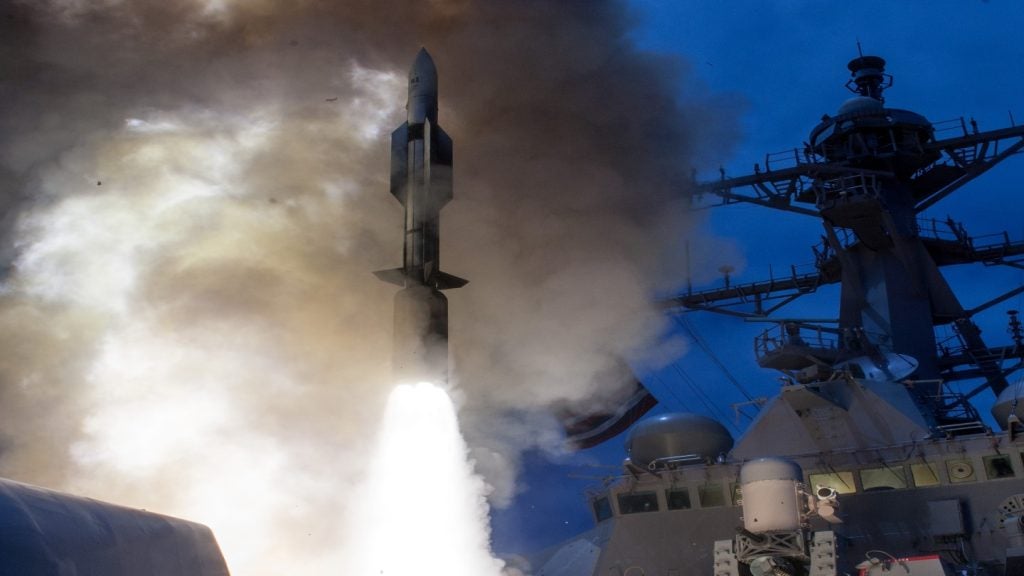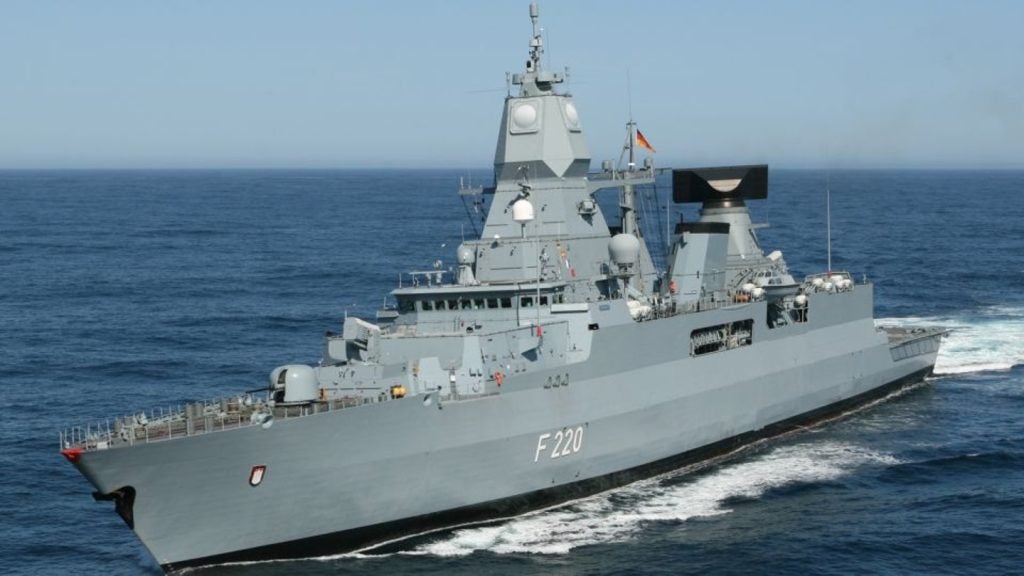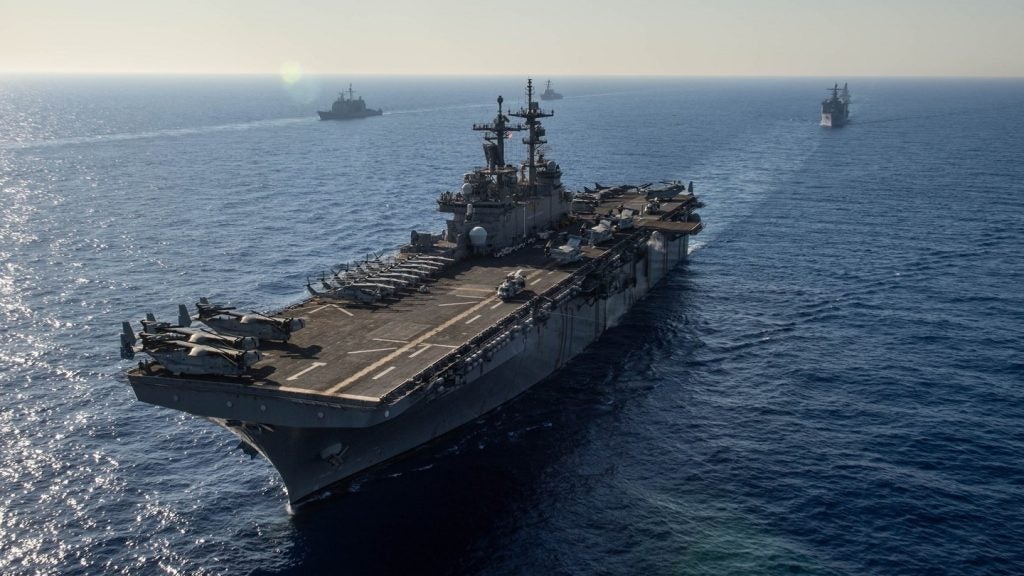Raytheon has been awarded a new $241m modification contract by the US Missile Defense Agency (MDA) to provide continued engineering design and development work on the Standard Missile (SM)-3 Block IIA.
Free Buyers Guide
Leading Guide to Submarine and Submersible Suppliers for the Naval Industry
Thank you.
Go deeper with GlobalData
Related Company Profiles
Your download email will arrive shortly.Please check your mail inbox to download buyer's guide
You may also be interested in:

Under the contract, the company will continue working with Japan’s Ministry of Defence to integrate the missile into the Aegis Weapon System, including the Aegis BMD 5.1 fire control and the MK41 vertical launching system.
The SM-3 Block IIA is an anti-ballistic missile that can be launched from ground stations or ships and features second and third-stage rocket motors as well as a larger advanced kinetic warhead for increased engagement capability and a greater defended area.
The early intercept capability SM-3 Block IIA missile is designed as part of phase two of the current administration’s Phased Adaptive Approach for missile defence.
It will be deployed on Aegis cruisers and destroyers to provide protection against short-to-intermediate-range ballistic missile threats in the mid-course phase of flight.
Earlier this year, Raytheon awarded a contract to Aerojet to supply an advanced Throttleable divert and attitude control system, which enables the missile’s kinetic warhead to intercept an incoming ballistic missile.
Lockheed Martin was awarded a 32-month, $43.3m contract for concept definition and programme planning for the SM-3 IIB missile, focusing on defining design objectives, conducting trade studies, reducing technology risk and developing an executable programme plan.
To date, Raytheon has delivered more than 130 SM-3s to the US and Japanese navies ahead of schedule and under cost to date.
The missile is scheduled for deployment in 2018.
Free Buyers Guide
Leading Guide to Submarine and Submersible Suppliers for the Naval Industry
Thank you.
Your download email will arrive shortly.Please check your mail inbox to download buyer's guide
You may also be interested in:

By downloading this Buyers Guide, you acknowledge that GlobalData UK Limited may share your information with our partners/sponsors who may contact you directly with information on their products and services.
Visit our Privacy Policy for more information about our services, how GlobalData may use, process and share your personal data, including information on your rights in respect of your personal data and how you can unsubscribe from future marketing communications. Our services are intended for corporate subscribers and you warrant that the email address submitted is your corporate email address.







